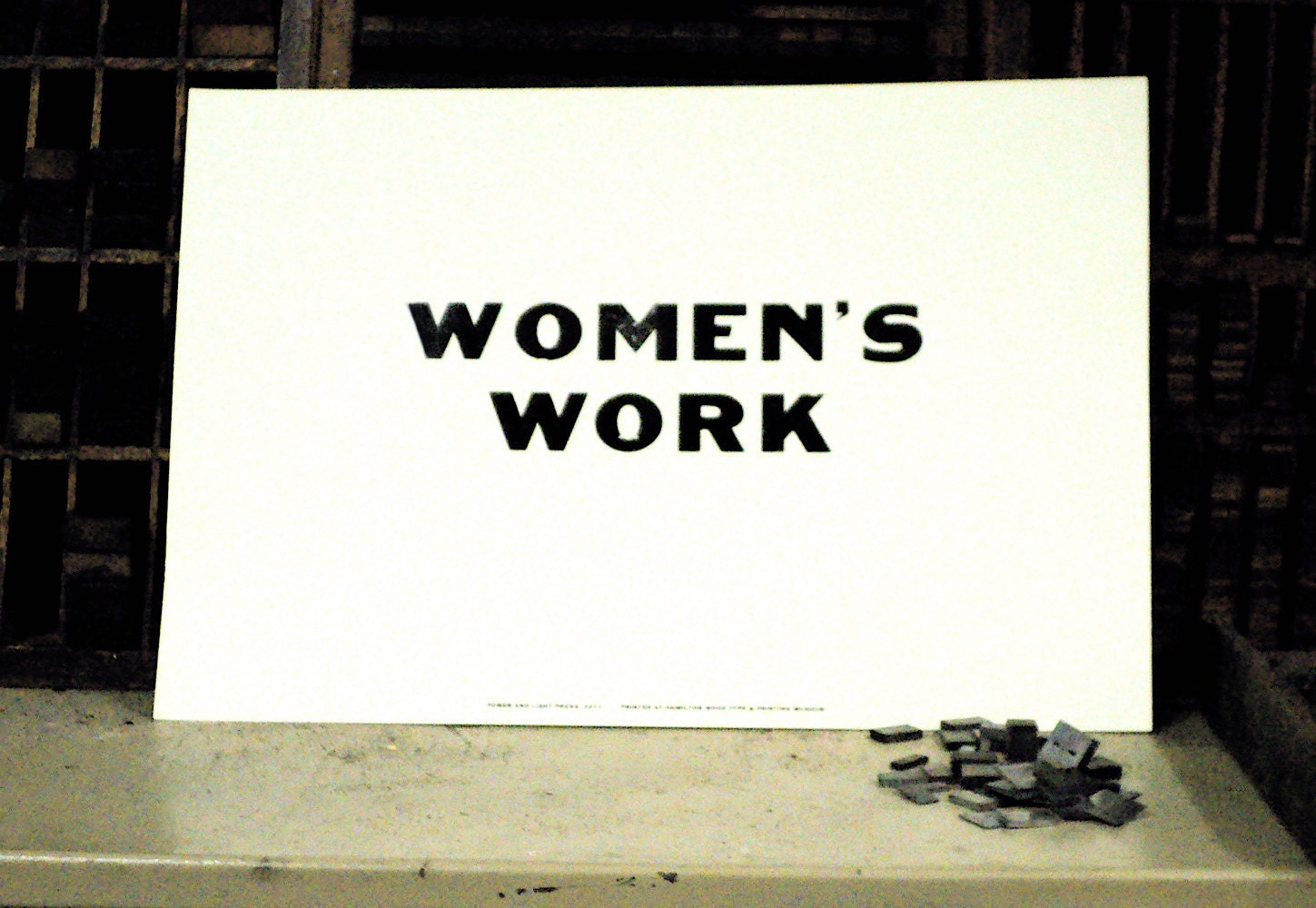
An article by Donna Britt about women and housework has been making the rounds today on Facebook. Basically, Britt writes about the rage that women feel because they continue to do more of the housework while also now engaging in significant careers. Britt's article (really an excerpt from her new book) ends with a realization that the person she has to change is herself--that she's the one making these demands on herself.
I don't necessarily resonate with the rage part, perhaps because I have a partner who does more than his half of the house and child work in our family, but I do resonate with the idea of placing demands on myself that my husband doesn't. Even though we both do housework, it seems to matter to me more; my husband doesn't think much about it if the laundry piles up, knowing that he'll get to it, while I tend to fret and grumble and see the mounting pile of clean, unfolded clothing as some kind of indictment of me as a wife and mother.
Why is that? And more importantly, what can I do about it?
The why has a lot, I think, to do with society and expectations, and probably some to do with my own personality, too. But the solution is what interests me more. Because this is where I think getting religious about things helps.
Religion--or any philosophical system--can offer an alternative to what society says we ought to care about. If I remind myself that my deepest values center around love and dignity for all people, is the laundry really that important? Sure, eventually you want folded clothes...but it doesn't really seem worth beating yourself up if you remember that your goal in life is to live compassionately, not neatly.
Of course thinking of this is the easy part. Remembering it is another story. Good thing my job is reminding people; all I need now is to listen to myself.



